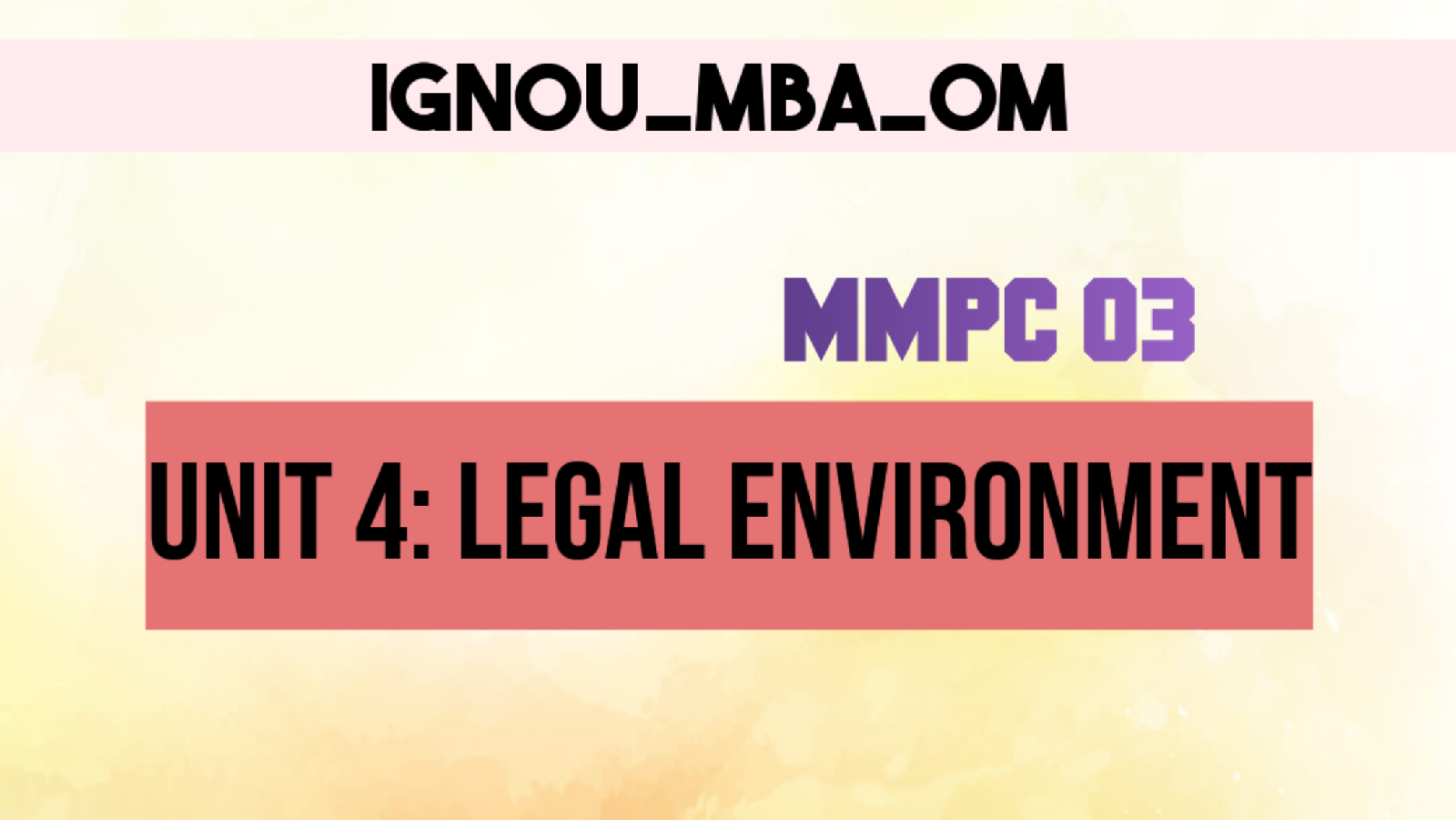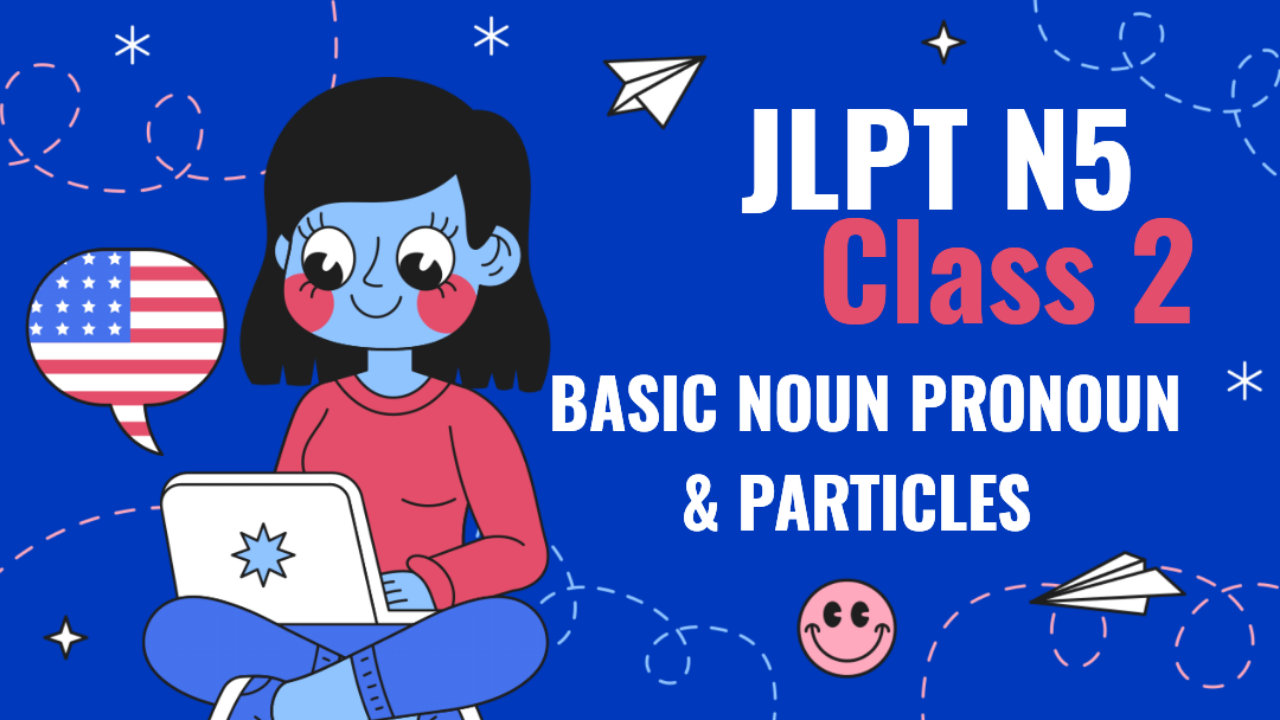Class for IGNOU MBA OM: MMPC-003 (Business Environment)
Unit 4: Legal Environment
1. Introduction to Legal Environment
The legal environment refers to the framework of laws and regulations that govern business operations. It includes rules, regulations, and statutes that businesses must follow to operate legally within a country. The legal environment ensures a fair business ecosystem and protects both businesses and consumers from unethical practices.
2. Key Theories and Concepts
2.1. Nature of Business Law
- Definition: Business law refers to the collection of laws that regulate the formation, operation, and dissolution of businesses. It covers various areas such as contracts, property, sales, and employment laws.
- Objective: To ensure that businesses operate within a legal framework, protecting both the rights of the company and the consumers.
2.2. Types of Laws Affecting Business
- Contract Law: Governs agreements between two or more parties. Contracts are legally binding and enforceable.
- Company Law: Regulates the formation and dissolution of companies. It includes rules about business structures (e.g., partnerships, corporations).
- Labor Law: Protects workers' rights, sets employment standards, and ensures fair treatment in workplaces.
- Consumer Protection Laws: Ensure businesses sell products that are safe and that consumers have rights if goods or services are faulty or misleading.
- Environmental Law: Regulates business activities that affect the environment and imposes penalties for pollution and waste.
2.3. Importance of the Legal Environment in Business
- Ensures Fair Competition: Prevents monopolies and ensures equal opportunities for businesses.
- Protects Consumer Rights: Provides mechanisms for consumers to seek redress in case of unethical practices.
- Encourages Ethical Practices: Businesses are required to adhere to ethical standards to avoid legal consequences.
- Facilitates International Trade: Legal frameworks ensure that international transactions follow the rules of international trade laws.
2.4. Compliance with Legal Standards
- Compliance: Refers to businesses adhering to laws and regulations that govern their operations. Non-compliance can result in fines, legal action, or shutdown of operations.
- Importance of Compliance: Ensures a good business reputation, builds consumer trust, and avoids legal penalties.
2.5. Intellectual Property Rights (IPR)
- Definition: Intellectual Property Rights protect creations of the mind, such as inventions, literary and artistic works, and symbols, names, and images used in commerce.
- Types:
- Patents: Protect inventions and give inventors exclusive rights to their use.
- Trademarks: Protect brand names, logos, and slogans.
- Copyrights: Protect original works of authorship such as books, music, and films.
- Trade Secrets: Protect confidential business information that gives a company a competitive edge.
3. Role of Regulatory Bodies
3.1. Role of the Government
- The government creates laws and regulatory bodies to ensure businesses operate ethically and in the best interest of society.
- Government bodies like the Securities and Exchange Board of India (SEBI) and Reserve Bank of India (RBI) regulate financial markets and banking activities, ensuring transparency and compliance.
3.2. Competition Commission
- The Competition Commission ensures fair competition in the market, preventing monopolistic practices and promoting a competitive business environment.
4. Case Study in Unit 4
A case study might discuss the Volkswagen emissions scandal where the company was found to be cheating on emissions tests. The legal consequences included massive fines and lawsuits due to non-compliance with environmental laws. This case highlights the importance of legal compliance for businesses and the repercussions of ignoring regulations.
5. Simplified Explanation of Unit 4
The legal environment is critical for businesses as it provides rules and guidelines for ethical operation. Business laws cover contracts, labor, company structures, and consumer protection, ensuring fairness and accountability. Intellectual Property Rights protect inventions, brands, and creative works. Companies must comply with legal standards to avoid penalties and maintain a good reputation. Regulatory bodies like SEBI and RBI ensure that businesses follow legal requirements and promote a healthy business environment.
6. Assignment Questions
- What is the legal environment of business, and why is it important?
- Discuss the importance of Intellectual Property Rights (IPR) and the different types of IPR.
- What are the key differences between contract law and labor law? Explain with examples.
- Why is compliance important for businesses? What are the potential consequences of non-compliance?
7. Self-Study Questions
- How do consumer protection laws ensure fair business practices?
- Discuss the role of the Competition Commission in preventing monopolistic practices.
- Why are environmental laws necessary for businesses, and what impact do they have on business operations?
8. Exam Questions
- Explain the significance of the legal environment in business operations. What are the different laws that businesses must follow?
- What are Intellectual Property Rights (IPR), and how do they benefit businesses? Discuss with examples.
- Discuss the role of regulatory bodies like SEBI and RBI in ensuring legal compliance in the financial sector.
This class on Unit 4: Legal Environment of MMPC-003 emphasizes the importance of business laws, compliance, intellectual property rights, and the role of regulatory bodies in promoting ethical business practices. Businesses must navigate the legal environment to operate successfully and avoid penalties while protecting their intellectual assets and maintaining fair competition.





















